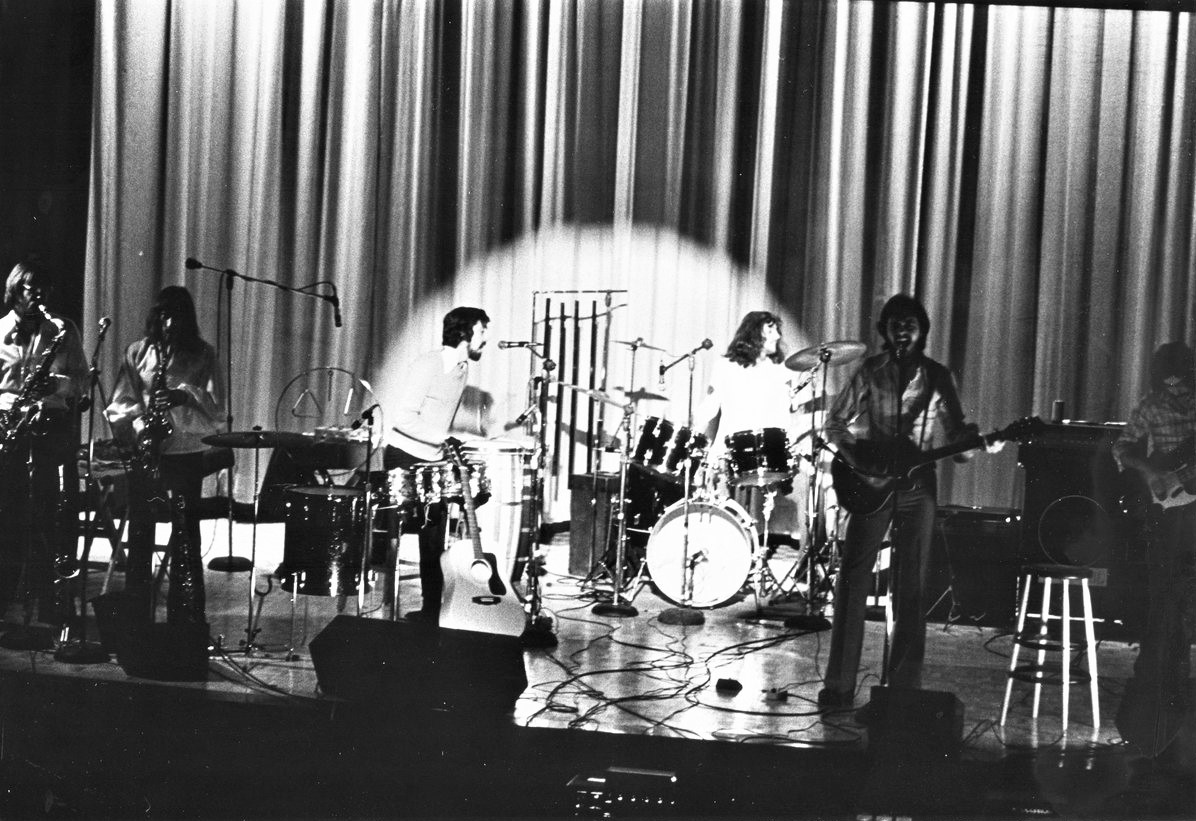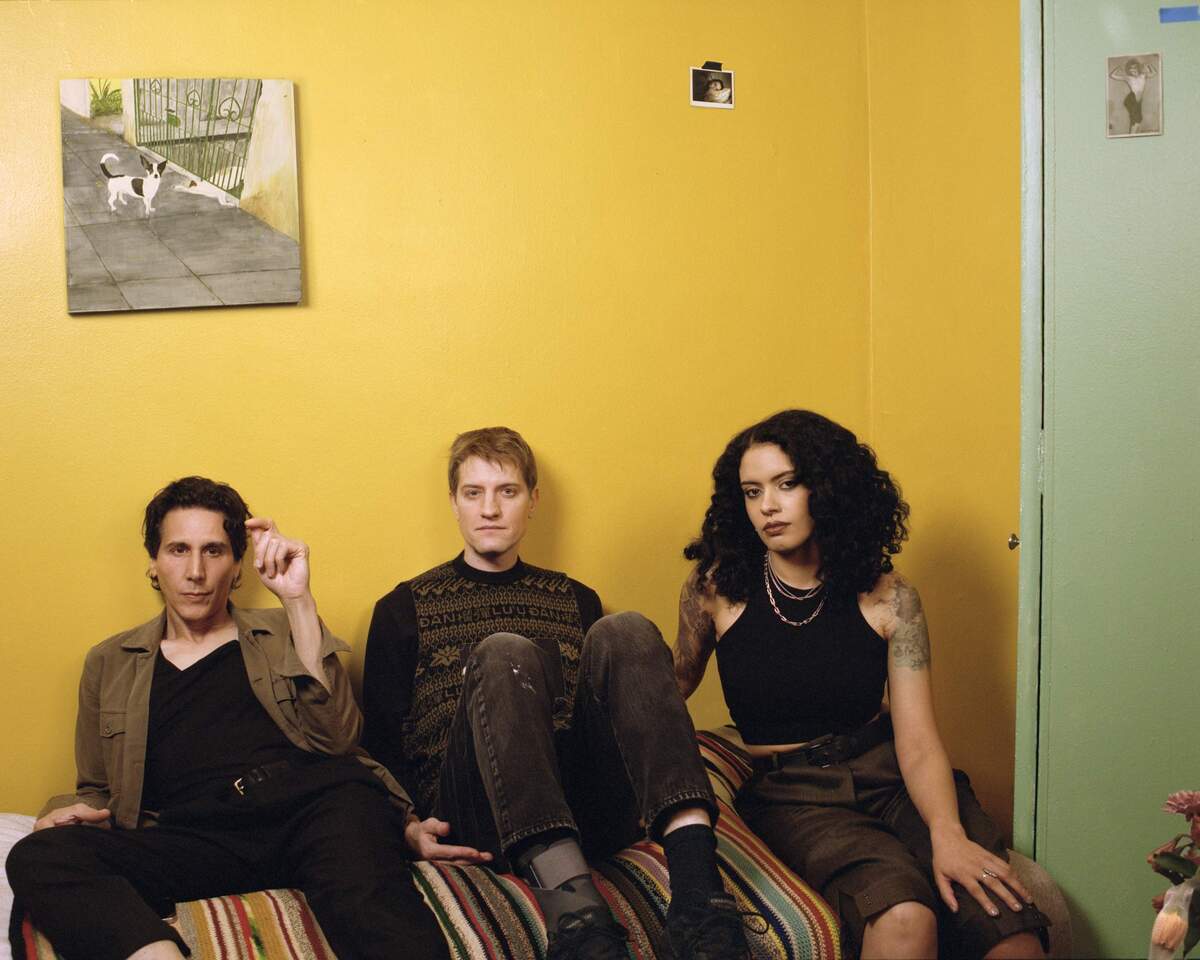Pour Nous Autres | Interview | Lost Prog Rock from Montreal
Archeologie Sonore and Explosive Groove Disquaire recently issued an unreleased album by Montreal progressive rock band Pour Nous Autres, active from 1974 to 1976.
The music of Pour Nous Autres is a clever mix of progressive rock, folk and jazz-fusion. This album is undoubtedly the missing musical piece between Contraction’s self-titled album (Columbia, 1972), ‘La Bourse Ou La Vie’ (Deram, 1974) and ‘Just’en Passant’ by Boule de Son (Miscal Boule De Son, 1975). The creative geniuses of Jean-Jacques Bourdeau and Jean-Claude Béliveau, two companions who still play together today, will charm Quebec music lovers, rock fans and progressive music fans. The album was printed in 250 copies numbered by hand and set with an inner sheet that includes a photo montage as well as the history of the group written by none other than Félix B. Desfossés. Side A features the demo recorded at Studio Bobinason, while on side B, we find the band’s first concert given at Collège Maisonneuve in Montréal.
The group formed by Jean-Claude Béliveau (guitar), Jean-Jacques Bourdeau (guitar), Yves Pezet (bass) and Denis Toupin (drums) decided to call himself “Nous Autres” on December 1st of the same year. Finally, the name “Pour Nous Autres” was used the following February.
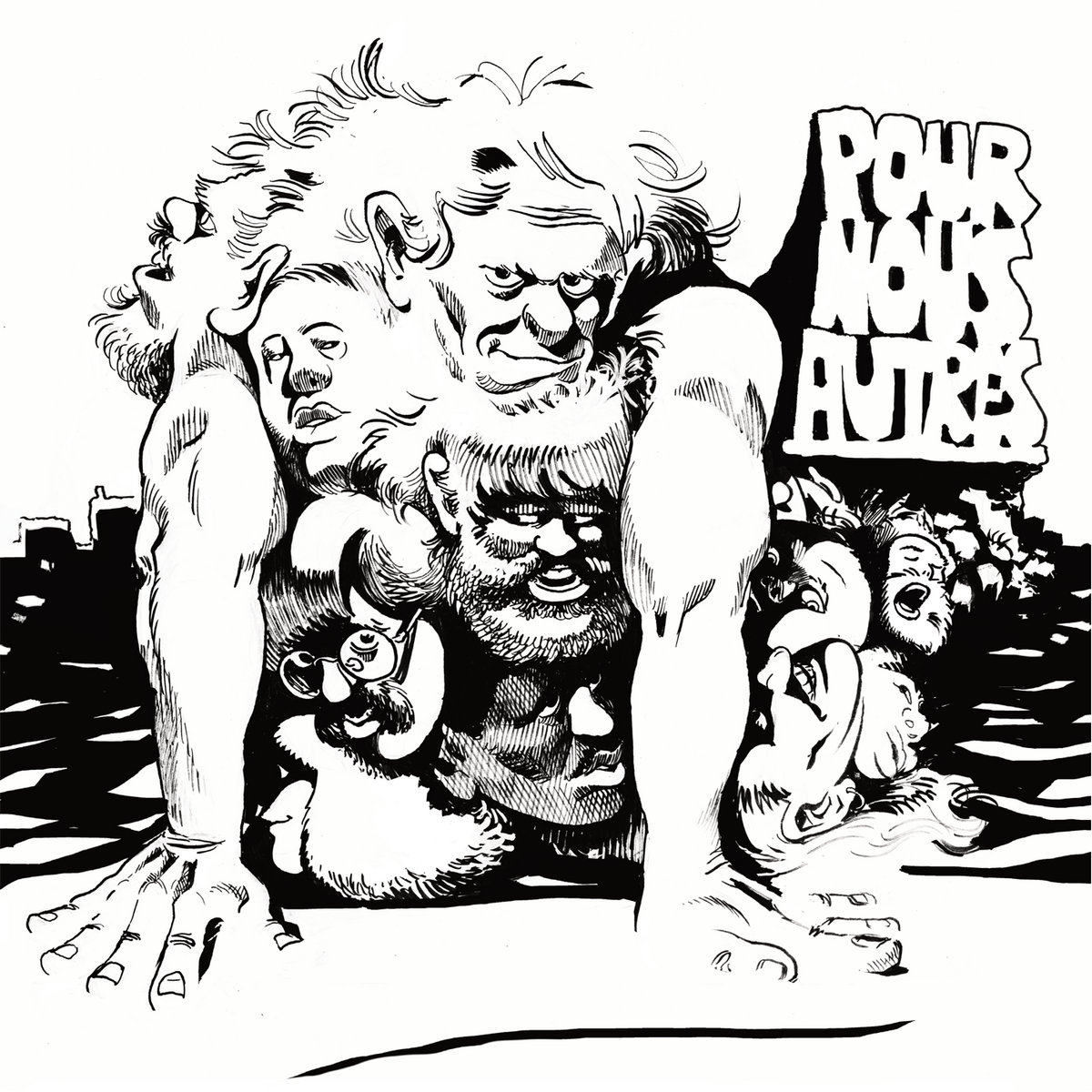
These days I’m always surprised when a new lost recording emerges. It was really exciting to see Pour Nous Autres come to life thanks to Archéologie Sonore and Explosive Groove Disquaire. How did the release project begin? How did they find your music?
Jean-Jacques Bourdeau played on the ‘Just’en Passant’ album by Boule de Son (Miscal Boule De Son, 1975). He was interviewed by Archéologie Sonore to provide insights of the experience. When Benjamin Gauthier (Archéologie Sonore) heard that Jean-Jacques already had his own band Pour Nous Autres in 1975, at the time he played on the album project with Boule de Son, he showed interest to hear from this other band.
Would you like to share about your upbringing? Did you all grow up in Montreal? Tell us about daily life back in your teenage years.
We all grew up in Montreal. More precisely, Jean-Jacques Bourdeau, Jean-Claude Béliveau and Yves Pezet lived in a district called Hochelaga-Maisonneuve, home of low salary working class for most people. Of course these days, no cell phones or personal computers exist. A baseball glove and a hockey stick were the basic kit for teenagers like us. Many of us tried to earn a little money working in groceries and little business, before or after attending high school (secondary school).
Was there a certain scene you were part of, maybe you had some favourite hangout places? Did you attend a lot of gigs back then?
Playing in auditoriums of hundreds of places was quite a thrill. But this could not be on a regular basis, mainly because the group had no manager. The band was producing itself. The most regular gig occurred during the summer of 1975: two evenings weekly, the band played in Old Montreal.
When did you first begin playing an instrument?
Jean-Claude Béliveau grew up with the guitar of his mother at home, but he really began to play when he was 13. Jean-Jacques Bourdeau received a gift from his sister: a nylon guitar, but he was 15 when he started to learn and play on an electric guitar. Yves Pezet followed a similar path when he got himself a bass. Denis Toupin should have begun early because he was only 16 when he started to play with Boule de Son.
Were any members of the band part of any other bands before forming Pour Nous Autres? Any released or unreleased recordings of that?
Denis was part of Boule de Son before joining Pour Nous Autres. Jean-Jacques was already with Pour Nous Autres when he contributed to the Boule de Son album. No recordings of previous groups (like Babylone for Jean-Claude Béliveau and Jean-Jacques Bourdeau) have survived the passage of time, being on tape. Anyhow, this is not a great loss, for these previous bands were playing mostly covers.
Tell us about Babylone.
Babylone was composed of four guys attending the same high school (secondary school). They played blues and rock and roll in church basements and schools. No original material, just covers. Babylone received attention from Georges Giguère and Jeunes Artistes Associés who had a mission to promote rock and alternative bands in Québec. We joined their lineup of bands, and we played elsewhere than the usual places we were used to.
What about Expedition?
I don’t know if Expedition was a band under the lineup of Jeunes Artistes Associés, but, in 1972, Georges Giguère brought us to a showcase of bands in an arena. Both Jean-Jacques Bourdeau and Jean-Claude Béliveau were impressed by the guitarist of Expedition, Jean Millaire, who would later play with Corbeau and Marjo.
Tell us about some of the records that influenced you the most when starting with Pour Nous Autres.
We used to challenge each other with our musical findings: Jetho Tull, The Doors, The Jimi Hendrix Experience, Cream, Blue Cheer, Procol Harum, Love Sculpture, but also Cat Stevens, Elton John, James Taylor, Carole King. Of course, ‘In the Court of the Crimson King’ by King Crimson was mind blowing. Another way to look at this is to track influences from musicians. Jean-Jacques Bourdeau, for instance, was influenced by the guitar playing of Eric Clapton. Jean-Claude Béliveau was influenced by the guitar playing of George Harrison.
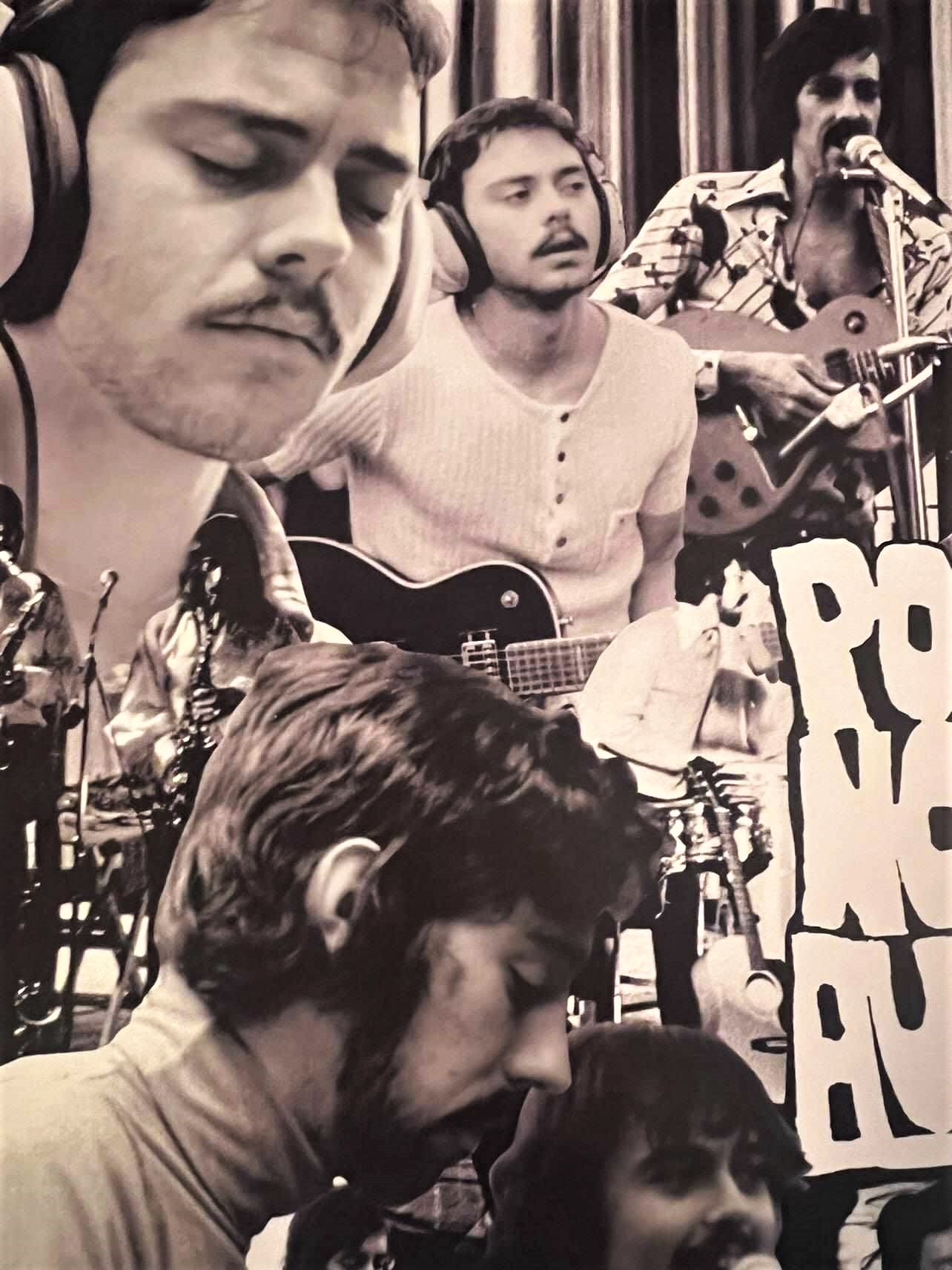
How did the band begin? Can you elaborate on that a bit?
When Babylone broke up, Jean-Jacques Bourdeau and Jean-Claude Béliveau began a search for musicians. As Jean-Claude Béliveau could play bass, they were mainly searching for a drummer. Ultimately, a tribute to Cream could be elaborate. But after trying a number of drummers, the only pick was… a bassist: Yves Pezet. When a tape recorder got into the local area, experimentation took place. One night, Boule de Son came into our “local laboratory, a friendly place where we played with each other. And that’s how we came to know Denis Toupin who was playing with the formation. Denis Toupin was eager to push experimentation with us. That’s how the band was completed.
When starting Pour Nous Autres, was there a certain concept you wanted to follow?
Obviously not. You just have to listen to pieces like ‘La grandeenvolée’ and ‘Départ’. These are worlds apart. We just looked at all the ideas on the table and made the best out of it. At the end of 1975, the addition of Gérard Cyr and Pierre Goyette gave a jazzy touch on our progressive stuff. With them on board, our identity became more precise and tangible.
What can you say about the material that appears on the recent release? Where was the material recorded and what kind of gear did you have in the studio?
Side A was recorded at Studio Bobinason, with Gérard Cyr and Pierre Goyette, in December 1975. A four track studio, not too expensive. We used the same instruments and amps that we carried on stages.
Side B was recorded live at the auditorium of Collège Maisonneuve, with Claire, in March 1975. So, Jean-Claude Béliveau played the guitars on an acoustic Guild, and an electric Guild through an Ampeg VT-22 amp. Jean-Jacques Bourdeau played the piano with the stand up pianos already in place at Studio Bobinason and at Collège Maisonneuve. Jean-Jacques Bourdeau also played the guitars on an acoustic Norman, and an electric Gibson Les Paul Special through a Marshall amp. Yves played the bass on a Fender Jazz Bass through an Ampeg amp over a JBL cabinet. Denis Toupin played the drums on a Pearl kit. He made his tubulars himself.
Was there ever an acetate or demo made that you could send to the labels and radio stations?
The recordings of December 1975 at Bobinason were made in the perspective of a demo we could send to anyone interested in our music. Unfortunately, our lack of contacts in the industry made our efforts almost useless. Moreover, we were minded to create and make music together. We didn’t have great strategies after that.
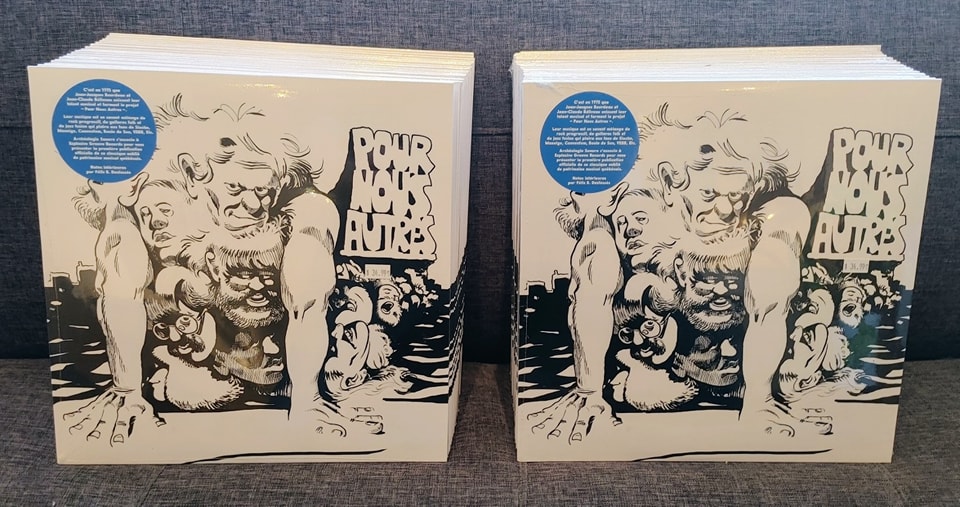
Would love it if you could share some further insight behind the tracks.
‘La Grande Envolée’
It started with the experience of using a Sony tape recorder as an echo chamber. All the ambiance generated sparked the creativity for the rest of the piece. And the riff played by the two guitars in the beginning is one of the most iconic pieces of music we could create.
‘Légende’
Jean-Jacques Bourdeau was a very different musician with a piano, in comparison than with a guitar. If it wasn’t for the steep bass riffs Yves Pezet gave to the piece, it would have stayed a very romantic acoustic melody. So the counterpart added by the bass and drums toppled over the piece into something progressive.
‘Rupture’
One day, a man we know, Robert Brisson, listened carefully to our rehearsal of this piece. He is a kind person, never intrusive, that only likes to hear from the kids we are. At the end of the rehearsal, he came to us and proposed that we could try a little swing with the notes Jean-Jacques Bourdeau and Jean-Claude Béliveau play on guitars, in the middle of the piece (at 3 minutes 3 seconds on the vinyl). This worked just fine. Many years later, Jean-Claude Béliveau was speaking with a jazzman in a bar on Ontario Street. Jean-Claude Béliveau learned from him that the same Robert Brisson played with his brothers in the music clubs of Montreal during the ’40. This man was not only a music lover, but an accomplished musician. Yves Pezet (on bass) is at his best on that title.
‘Celle Que J’aime’
Jean-Claude Béliveau is proud of having written music with such a happy swing. Many years later, he finds that he could have worked a little harder on the lyrics. But hey, the tune was one of the first original new material of the group.
‘Pour Nous Autres’
Jean-Jacques Bourdeau proposed that we start the shows with something welcoming for the people attending. A kind of invitation to get on our bus, take a seat: “On t’embarque.” And for the ones that didn’t know us, the entire show could be quite a journey through new material. So, a welcome was welcome.
‘Un Matin (Correspondance)’
One more attempt to work on lyrics. The singing with three voices is also an attempt to raise emotion on stage.
‘I Realized’
Sometimes, you find a new melody and you try to fit words with it. A technique Jean-Claude Béliveau seldom applied, is to put down words phonetically as they come, be it in English, and to translate and adapt them in French after. But it didn’t work for this one. So it stayed in English.
‘Départ’
Claire Paré brought her feminine perspective in the song writing. Having a female in the group, we were glad that a Montreal journalist pointed out that Pour Nous Autres had an identity of its own, different from Beau Dommage and Contraction who had also a female singer.
‘Joue Les DoncVoir’
We found the “discussion” between the drums and the congas to be innovative. It was surely something very spectacular on stage. Jean-Jacques Bourdeau is on the congas, Denis Toupin on drums, Jean-Claude Béliveau on the guitar (he plays on Jean-Jacques Bourdeau’s Gibson Les Paul), Yves Pezet on bass and Claire Paré on backing vocals. We were proud of this one. Proud of the enthusiasm of the assistance.
Are there any other recordings left?
Not to our knowledge.
Did you play a lot of gigs? What are some of the highlights?
A lot of gigs in Old Montreal during the summer of 1975. A big thrill has been to play on Mt-Royal during the festivities of Québec’s national day: La Saint-Jean-Baptiste. Many thousands of people passed by our stage. Some stayed with us, while the majority merged toward the bigger stages. Playing at the Kiosque International (Terre des Hommes – Man and his World) was also something with its grand piano and its big technical facilities.
What would be the craziest story that happened to the band?
Maybe you already know that a journalist covering criminal affairs was appointed to cover our show on Mt-Royal. Very unusual. He didn’t interview us either. So, here is another story: One day, in Old Montreal, a tourist from India bought a ticket to hear the band. During the first song, the guy disappeared. He came back after the end of the show with a nice appreciation of the music he heard. But, he was not comfortable with the loudness of our sound. So, he listened to the whole show, one story below the stage.
What happened after the band stopped? Were you still in touch with other members? Is any member still involved with the music?
For Jean-Jacques Bourdeau and Jean-Claude Béliveau, this break up was the last. They never tried to recruit and form another alternative group of their own. Instead, for a while, with Yves Pezet and Denis Toupin, they served as band members and song arrangers for Laurent Lavigne. Jean-Claude Béliveau continued to play and compose songs, but not on a professional basis. Jean-Jacques Bourdeau started his own recording studio, recording for instance: Rock et Belles Oreilles, Marie-Claire Séguin, Karen Young and many more. He recorded the preproduction of the album ‘Tension Attention’ by Daniel Lavoie. Yves Pezet continued to play bass for pleasure. Denis Toupin has been drummer for Rock Voisine (during all of his first European tour), for Richard Séguin, Paul Piché, Men Without Hats. Pierre Goyette continued to teach music. Gérard continued a professional career as band leader (chef d’orchestre) on many projects and TV shows, he composed music for TV productions and the sound track of the movie ‘Pinpon’. He played keyboards and saxophone on more than 2,500 shows of Cirque du Soleil, during ten years. Claire turned the page of music.
Today and since 2013, Jean-Jacques Bourdeau and Jean-Claude Béliveau still play together in Clind’oeil à Francis Cabrel, a tribute show to the French singer.
Looking back, what was the highlight of your time in the band? Which songs are you most proud of? Where and when was your most memorable gig?
‘La Grande Envolée’, ‘Rupture’, and ‘Joue Les DoncVoir’ are our preferred pieces. There were big chunks of creativity in these. We talked about the shows on Mt-Royal and Kiosque International as memorable gigs. But the show at Collège Maisonneuve, recorded in March 1975 (and that you partly find on Side B of the vinyl) was memorable for it was the first time we presented a program with all the songs and pieces being new material, all our compositions.
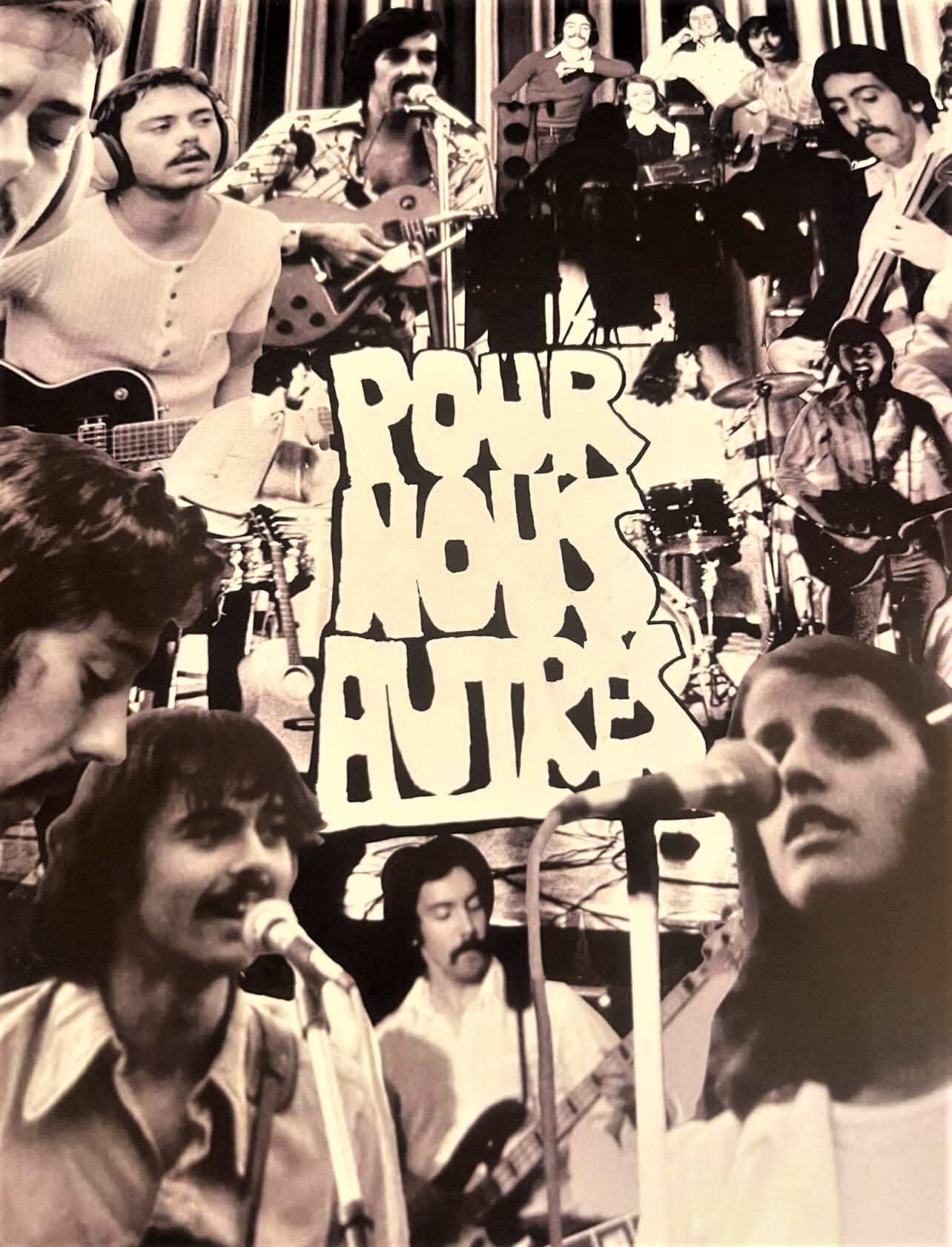
How do you feel that after so many years people are able to hear your music?
It’s a mix of incredible feelings. Lucky to be found after almost 50 years. Lucky to be able to trace all the members of Pour Nous Autres (we’re all alive!). Thankful to Archéologie Sonore that supported the vinyl project of vinyl for two years. Proud to hear that people in other countries buy and listen to our music – even if the numbers are small, it’s crazy when you think about that. Happy that so much work 50 years ago, and today with the production of the vinyl, can be shared with other music lovers.
Thank you Klemen for all your questions. We appreciate the interest you have for our music.
Klemen Breznikar
Archeologie Sonore Facebook / Instagram
Explosive Groove Disquaire Official Website / Facebook / Instagram

